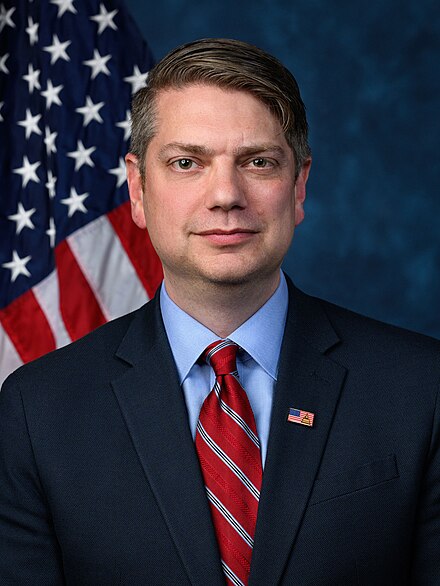Rep. Nick Begich III (R-AK) introduced three bills targeting important issues for Alaska Natives moments after being sworn in on Dec. 3 to the U.S. House of Representatives. The Republican replaced Democratic incumbent Mary Peltola after defeating her in November.

One of the bills, the Alaska Native Settlement Trust Eligibility Act, builds on a similar bill introduced by Peltola (Yup'ik) that wasn’t passed during her term.
The bill excludes settlement trust benefits from being considered income for Alaska Natives who are blind, disabled, or over 65 when determining eligibility for federal benefits such as Supplemental Security Income (SSI), the Supplemental Nutrition Assistance Program (SNAP) and housing assistance. If this is passed, disabled or elderly Alaska Natives will not be forced to choose between trust income and federal aid.
The second bill introduced by Begich, the Unrecognized Southeast Alaska Native Communities Recognition and Compensation Act, amends the Alaska Native Claims Settlement Act (ANCSA) to allow Haines, Ketchikan, Petersburg, Tenakee, and Wrangell to form urban corporations. These historically excluded Native communities will be restored land entitlements and will be able to select 23,040 acres each from the Tongass National Forest. Peltola introduced similar legislation in July 2023, alongside a Senate version of the bill introduced by Sen. Lisa Murkowski (R-AK).
The third bill, the Alaska Native Village Municipal Lands Restoration Act, eliminates the requirement under ANCSA Section 14(c)(3) that Alaska Native Village Corporations convey land to the state to be held in trust for future municipalities. Undeveloped land will instead be returned to the original village corporations. Murkowski introduced a Senate version of the legislation in July 2023; Peltola introduced a House version in Nov. 2023.
Making this change would allow Alaska Native communities to develop and use their lands for housing, community expansion, and other economic ventures, according to Begich.
“Alaska deserves quick, decisive action,” Begich said in a statement. “By introducing these bills on my first day, I want Alaskans to know that my team and I are hitting the ground running to advocate for our state’s future—starting right now.”
More Stories Like This
Native News Weekly (August 25, 2024): D.C. BriefsNavajo Nation Mourns the Passing of Former Vice President Rex Lee Jim
Deb Haaland Earns Endorsement From Communications Workers of America Local 7076
University Soccer Standout Leads by Example
Two Native Americans Named to Democratic Congressional Campaign Committee's“Red to Blue” Program
Help us defend tribal sovereignty.
At Native News Online, our mission is rooted in telling the stories that strengthen sovereignty and uplift Indigenous voices — not just at year’s end, but every single day.
Because of your generosity last year, we were able to keep our reporters on the ground in tribal communities, at national gatherings and in the halls of Congress — covering the issues that matter most to Indian Country: sovereignty, culture, education, health and economic opportunity.
That support sustained us through a tough year in 2025. Now, as we look to the year ahead, we need your help right now to ensure warrior journalism remains strong — reporting that defends tribal sovereignty, amplifies Native truth, and holds power accountable.
 The stakes couldn't be higher. Your support keeps Native voices heard, Native stories told and Native sovereignty defended.
The stakes couldn't be higher. Your support keeps Native voices heard, Native stories told and Native sovereignty defended.
Stand with Warrior Journalism today.
Levi Rickert (Potawatomi), Editor & Publisher

